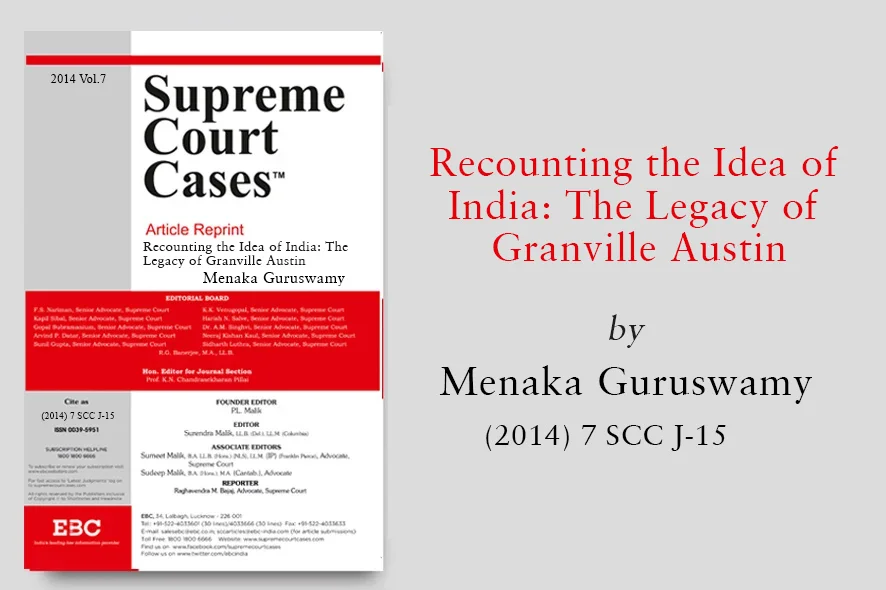Introduction
Granville Austin’s account of India’s successful Constitution-making process is an invaluable resource, for the many generations born long after the Constitution was made. Austin’s work serves to educate lawyers, scholars and Judges alike on our Constitution and its crafting. He recounts the debates, and assesses the processes that essentially constituted the idea of India as a cosmopolitan constitutional democracy. Accounts such as Austin’s are immensely significant—for by making the Constitution-making process accessible to diverse audiences, they contribute to establishing a culture of constitutionalism. What are the ingredients of this culture of constitutionalism? A belief in the compact that is the text, a commitment to change within the terms of this document, and a moral, social and legal acceptance of its vision are some of the ingredients of constitutionalism. One cannot take such a culture of constitutionalism for granted. India’s experience of uninterrupted democratic constitutionalism is unique in the South-Asian region.
Granville Austin’s great contributions to Indian constitutionalism are his two books. The first, The Indian Constitution: Cornerstone of a Nation documents and analyses India’s Constitution-making process. The second book, Working a Democratic Constitution examines India’s experiences with democratic constitutionalism, from the adoption of the Constitution in 1950 to the early 1990s. Austin’s third book is called Retrieving Times, and was written a decade ago. It is about his life in Vermont, the town of Norwich which he lived in and its people. How did the young boy from Norwich, Vermont end up documenting India’s founding?
Read the complete article here.
* Advocate, Supreme Court of India The author was educated at the National Law School of India, Harvard Law School and Oxford University.
* The article has been published with kind permission of SCC Online cited as (2014) 7 SCC J-15.







